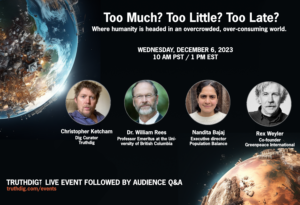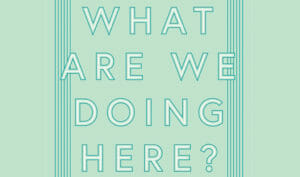Creatures of a Day
A new book on confronting mortality by Dr. Irvin Yalom illustrates that, when in the midst of another human being's darkness, we should worry less about shining a light, and instead simply hold the person's hand and stay in the darkness with him or her. Basic Books
Basic Books
Basic Books
|
To see long excerpts from “Creatures of a Day” at Google Books, click here. |
“Creatures of a Day” A book by Dr. Irvin D. Yalom
Why, in animated Disney movies, is a parent almost always missing? Bambi and Nemo lose their moms, Ariel’s mother is absent and so is Belle’s. The sisters in “Frozen” lose their father and mother in the same shipwreck.
Perhaps the dead parent is a child’s worst fear. Or maybe, as my pet theory goes, as 40-50 percent of marriages end in divorce, Disney storytellers feel compelled to tell stories with one parent missing. Then again, many Disney films are based on old fairy tales, set long before divorce existed, with their own body counts. Like Anna and Elsa, Cinderella loses both parents before the story even starts. Ditto for Snow White. Perhaps an incredibly high maternal mortality rate in childbirth inspired these legends? But in the end, it may be something far more fundamental. To grow up, children need to learn the biggest life lesson of all: death.
Irvin D. Yalom’s collection of 10 short, poignant stories, “Creatures of a Day and Other Tales of Psychotherapy,” is no Disney movie. In each of the stories, a different patient is featured with one issue or another, but in the end they must confront the same singular truth: We all die. It is the resistance to this truth that causes their emotional and psychic anguish. For some of the patients, experiencing the death of a loved one forces them to face this truth in a way that profoundly challenges who they are.
In his book, Yalom lays death out like a welcome mat, when he reveals the source of the book’s title: a passage from Marcus Aurelius’ “The Meditations”:
All of us are creatures of a day; the rememberer and the remembered alike. All is ephemeral — both memory and the object of memory. The time is at hand when you will have forgotten everything, and the time is at hand when all will have forgotten you. Always reflect that soon you will be no one, and nowhere.
Yikes.
Undeterred, I took a deep breath and read on. But after meeting Yalom’s first patient, I began to wonder how many of these sad stories of death I could endure before wishing for my own.
But thankfully, very soon into the second story, I get a welcome surprise. It becomes clear that Yalom’s approach is unconventional. It turns out that the 82-year-old psychotherapist is a bit of a maverick, in the most endearing way possible: not because he is young and wants to break the rules, but because he’s seen more than most and has learned that the rules don’t always apply. It’s a relief to discover that the book wouldn’t simply be a play-by-play recounting of a therapist’s successes and failures. Yalom implicates himself in a real, honest way. He admits, with not a small amount of pride, that like most seasoned therapists, “I work far more intuitively in my pursuit of information. I’ve come to trust my intuition so much I suspect I’m no longer a good teacher for neophytes, who required methodical guidelines in their early years.”
Throughout each of the stories, he breaks traditional therapist edicts, or at least our idea of them: he talks about himself and his experiences, he shares his personal thoughts, and he focuses the patient into the present moment, with him. Speaking to a patient he calls Charles (all patient names have been changed in his book, save for one that insisted her real name be used), Yalom tells him that he wants “us to be a ‘we’ as much as possible. There’s always an unbridgeable gap between two people, but I want to make that gap as small as possible here in this room.” When in a particular difficult interaction with a female patient, Yalom reminds himself that “the most valuable thing I have to offer is my sheer presence. Just be with her. . . . Stop trying to think of something wise and clever to say. Let go of the search for some dynamite interpretation that will make all the difference. Your job is simply to offer her your full presence. Trust her to find the things she needs from the session.” Yalom’s disarming, intimate approach makes him less like a psychotherapist and more like a wise sage.
When a patient named Alvin mentions that he was orphaned years before and was now dealing with the loss of his brother to cancer, Yalom gives voice to the silences between Alvin’s words:
Your comment about being an orphan is so important. I’ve heard many others who lost their parents say that. And I know I had the very same thought when my mother died, ten years after my father. When parents die, we always feel vulnerable because we’re dealing not only with loss but also with confronting our own death. When we become orphans, there is no one between us and the grave.
Yalom doesn’t provide solace, but instead offers a kind of companionship in facing the truth. To him, our inescapable, shared fate is beyond consolation and the only thing to do is to look straight into it, unflinchingly, and recognize it as a universal experience. Time and time again, Yalom bridges the unbridgeable gap, with patient and reader alike. I began to feel a small portion of how I imagine his patients must have felt, and I begin to trust him too.
Another patient dying of a terminal illness wrote in her after-session responses that “Irv puts me at ease and he’s not afraid to go into the darkness with me. . . . I need people who can look straight into my eyes. Irv is good at that. He doesn’t look away.” Perhaps because at 82, Yalom himself is facing his own mortality in a very real way, so when the topic comes up, as it inevitably does, he speaks with gentle and personal authority. In one revealing moment, he tells a patient named Natasha that for him,
one of the darkest things about death is that when I die, my whole world — that is, my world of memories, that rich world peopled by everyone I’ve ever known, that world that seems so rooted in granite — will vanish with me. Poof! Just like that.
He goes further:
The last couple of weeks I’ve been cleaning out boxes of old papers and photos, and I look at them, perhaps a picture of some street in my childhood neighborhood or some friend or relative whom no one else alive ever knew, and I throw them away, and each time I do, something shudders inside as I see pieces of my old real world flaking away.
This bold honesty pervades the entire book. One can’t help but feel a kinship with Yalom when he reveals his struggle with his own mortality:
Death anxiety never really disappears, especially for those like me who continue to poke around in their unconscious. Even after all that work on myself, I continue to have my occasional three am awakenings during which I replay scenes in which I learn of my own fatal diagnosis, or lie on my deathbed, or imagine my wife’s grief. . . .
He humbly describes his “deteriorating scaffolding, my obstinate, creaking joints, my fading hearing and vision, and ever aware of the deepening dusk and relentless approach of the final darkness.” Yalom may speak to his patients about their darkest fears, but all the while, it is they who are allowing him to face those very fears himself.
“Creatures of a Day” never lets you forget that it is dealing with the hardest truth we all face. It holds death in front of you and, like Yalom with his patients, doesn’t allow you to ignore it. I can see how it can be a balm to those who are either dealing with personal loss or are going into that final darkness themselves. Ten sessions with Yalom, gratis. But the stories taken together become much more than that. “Creatures of a Day” is a touching meditation on the ephemeral nature of life, and beautifully illustrates that when in the midst of another human being’s darkness, we should worry less about shining a light, and endeavor more to simply hold the person’s hand, and stay in the darkness with him or her.
Your support matters…Independent journalism is under threat and overshadowed by heavily funded mainstream media.
You can help level the playing field. Become a member.
Your tax-deductible contribution keeps us digging beneath the headlines to give you thought-provoking, investigative reporting and analysis that unearths what's really happening- without compromise.
Give today to support our courageous, independent journalists.






You need to be a supporter to comment.
There are currently no responses to this article.
Be the first to respond.